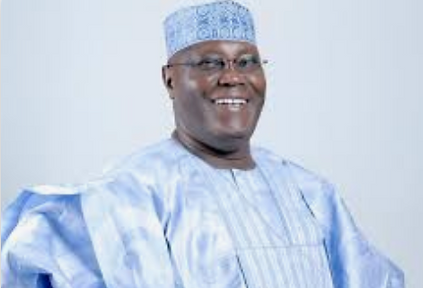NYFA LEADERS' ECONOMIC DIGEST
Episode 14
By NYFA Editors
Nigeria’s By-Elections Farce: Democracy Takes a Siesta.
The recent by-elections in Nigeria have precipitated a plethora of concerns regarding the efficacy of the electoral process, with allegations of vote buying and rigging assuming a position of considerable prominence. One notes with interest that the APC's pecuniary operatives appear to have monopolised the market on vote buying, thereby relegating other parties to a position of subsidiary relevance. This phenomenon has led to a situation where the outcome of elections is often determined by the depth of a candidate's purse rather than the will of the people.
In this context, the ADC's prospects of success in the 2027 elections appear somewhat daunting. However, it is not entirely impossible for the party to outwit the APC's vote buying apparatus. To do so, the ADC might consider adopting a multi-pronged approach, comprising grassroots mobilisation through genuine engagement and community outreach, whilst fostering an organic connection with the electorate. By building a robust network of trusted agents and volunteers, the ADC can potentially insulate itself against electoral malfeasance and present a credible challenge to the APC's electoral dominance.
The Oyo, Kano and other similar States’ fiasco, where certain APC agents demonstrated a remarkable lack of decorum, inflating numbers and appending their signatures to the APC column with reckless abandon, serves as a stark reminder of the depths to which electoral corruption can sink. One is left to ponder the motivations of individuals who would stoop so low as to blatantly write out their names for election fraud reward, as if eager to leave a paper trail of their malfeasance for all to see. This egregious display of electoral impropriety is a travesty that undermines the very fabric of democracy.
In light of these developments, the INEC's efforts to rebuild trust and confidence in the electoral process are questionable, the road to reform appears long and arduous; and the current system's credibility lies in tatters. The INEC's predicament is somewhat akin to that of Sisyphus, pushing a boulder up a mountain only to have it roll back down, necessitating a fresh attempt. One wonders whether the INEC's efforts will ultimately be successful in restoring the integrity of the electoral process or whether they will be thwarted by the entrenched interests of those who benefit from the status quo.
Furthermore, the implications of these electoral anomalies extend far beyond the confines of Nigeria's electoral politics. They have significant consequences for the country's democratic development and the legitimacy of its institutions. The perpetuation of electoral malfeasance undermines the trust and confidence of citizens in the democratic process, creating a sense of disillusionment and disaffection. This, in turn, can have far-reaching consequences for the stability and security of the country, as citizens become increasingly disenchanted with the political process.
Therefore, the current electoral system in Nigeria is in need of radical reform. Vote buying and rigging have become endemic, and the INEC's efforts to address these issues have been met with limited success. It is imperative that a comprehensive overhaul be undertaken, prioritising transparency, accountability, and the will of the people. Until then, Nigeria's democracy will remain a fragile construct, susceptible to manipulation and subversion. The international community, including organisations that promote democracy and good governance, must take note of these developments and offer support to Nigeria's electoral authorities in their quest for reform.
It is rather disconcerting to note that democracy in Nigeria appears to be in a state of dormancy, much like a siesta, where the electoral process is concerned. The question remains as to whether Nigeria's democracy will awaken from its slumber and reclaim its rightful place as a bastion of democratic principles, or whether it will continue to languish in its current state of electoral malaise.

